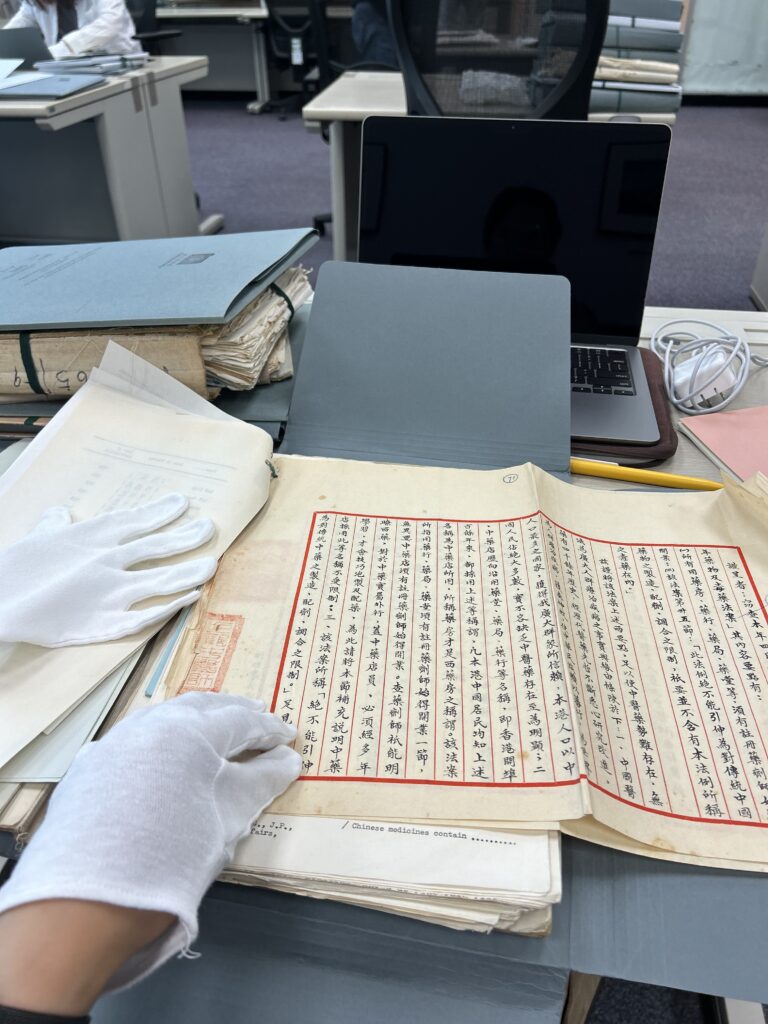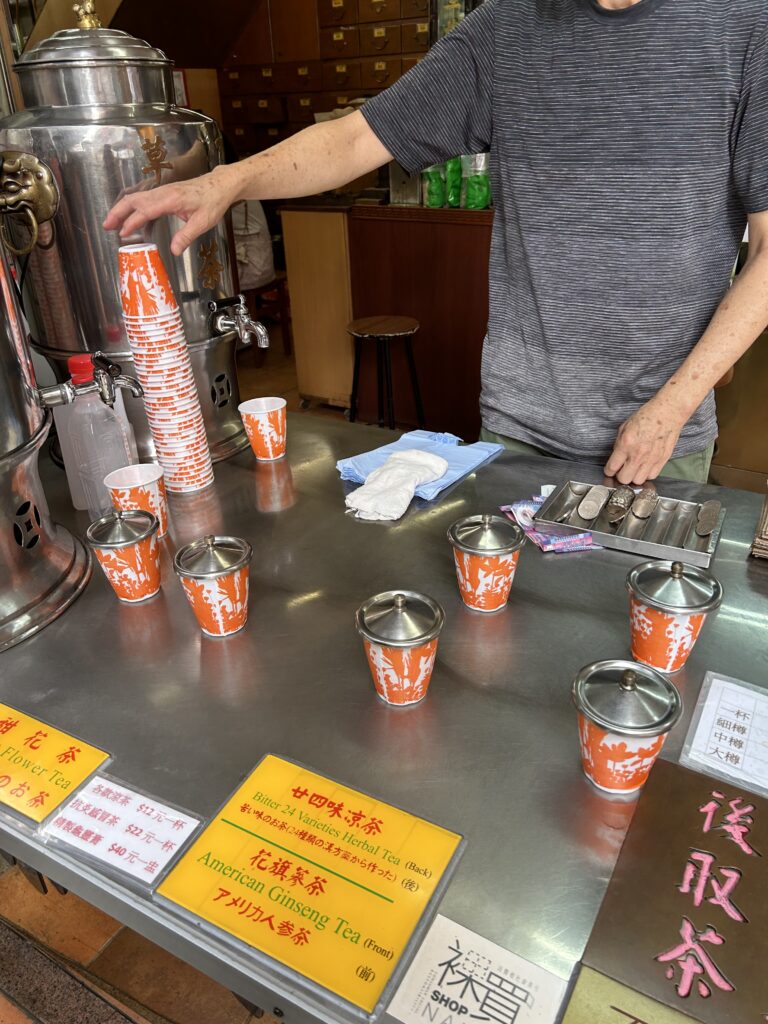Graduate Profile: Ania Mah Gricuk
Ania Mah Gricuk is a 3rd year History Ph.D. student who received the 2023 THI Summer Research and the 2024 Summer Pathways fellowships. Gricuk was able to conduct significant research travel in Asia with this support, furthering her scholarship on the history, development, and uses of herbal teas. We sat down with her to learn more about these successful trips and her research project “The Crossroads of Diaspora, Medicine, and Commerce: A Transnational Story of Cooling Herbal Tea.”
Hi Ania! Great to chat with you today about your fascinating work. Let’s start by hearing about your research and what interests you.

I became interested in cooling herbal tea and Chinese medicine through one brand started by a Chinese Malaysian doctor who treated Chinese tin miners in the Perak region of British Malaya. This doctor studied Chinese medicine in Hong Kong, which made me realize that the medicinal and herbal knowledge related to this tea has been circulating from China to other parts of Asia and the world for many years, maybe even centuries. For my current dissertation project, I am looking at the history of this tea in multiple locations and how it evolved when it arrived in a new place.
For your fellowship, you traveled to Hong Kong. Could you tell us about the research you conducted there and what you found particularly useful?
I conducted archival research at the Public Records Office and the University of Hong Kong Special Collections. I examined countless documents on herbal medicine, herbalist societies and guilds, and how the colonial government of Hong Kong treated Chinese medical professionals. For example, I noticed that Chinese medicine was widely unregulated under British colonial rule. This meant that herbalists and other practitioners could make their own governing structures, such as the Hong Kong Herbalists Association. This type of governance is quite unusual for medicine, which tends to be tightly regulated by the government. This realization has inspired me to further research the relationship between non-Western medicine and colonialism, as well as the concept of governance.

But what I found most inspiring (and fun!) was visiting herbal tea shops and trying different varieties and blends. Seeing the practice alive today will hopefully help me trace its development and change over the decades. I wonder what sort of regulations govern these herbal medicines today and what fostered the shift. Stay tuned!
Applying this to your future dissertation goals, how do you plan to build on your summer fieldwork to examine your broader research topics?
Hong Kong plays a key role in my future research. It was the nexus of shipping and trade of medicinal substances and housed many Chinese medicine guilds, schools, and brands. Focusing on the concept of governance and regulation I mentioned earlier will help me narrow down my research question for the dissertation and identify some theory to engage with. Having done preliminary research last summer, I am confident that I can return and dig deeper into the history of cooling tea. This research has also made me realize that studying something, which is ubiquitous and ephemeral, like the practice of preparing a type of medicinal tea, can be quite challenging. There aren’t always explicit references in the archives because many people passed down their medicinal knowledge and recipes in the home or orally. Now I know that when I return, I need to devote a significant portion of my time to oral history interviews because it is the only way to gain insight into the daily life of the tea. Moreover, when I visit other sites in the future, such as Singapore or Malaysia, I can search for how these places were connected to Hong Kong and how the tea traveled and evolved.

For our last question, what was something you found in the archives that was fascinating but maybe not relevant to your research? We love a good archival find!
Looking through the archives of the Hong Kong and Kowloon Chinese Medicine Employees Association, I learned that individuals from around the world interested in learning about Chinese medicine or becoming practitioners would reach out to people in Hong Kong for advice.
People from all kinds of places, including the United States, India, Pakistan, the Netherlands, Canada, Malaysia, Singapore, and many others, corresponded with Hong Kong-based association members throughout the twentieth century. It’s cool to know that such a global knowledge exchange was happening!
Banner image: Cooling tea shop, Sheung Wan, Hong Kong
